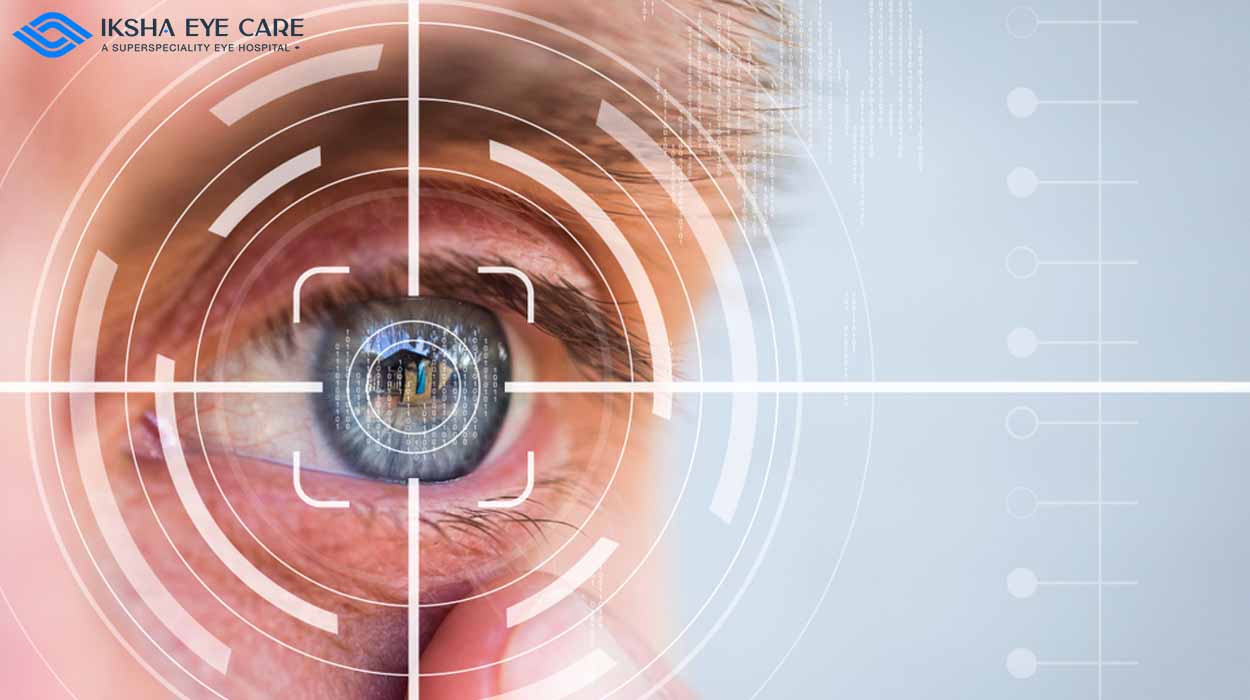Refractive Surgeries in AL: Boost Your Vision with Expert Care
Refractive Surgeries in AL: Boost Your Vision with Expert Care
Blog Article
Comprehending the Various Eye Issues Treated by Specialized Eye Care Professionals
In the world of eye care, specialized specialists play a critical function in diagnosing and dealing with a broad array of eye problems. From common refractive errors that influence vision clearness to age-related problems that present challenges as we expand older, the know-how of these professionals includes handling vision-threatening conditions and complex corneal disorders. Moreover, the complexities of neurological eye problems existing distinct obstacles that require specialized treatment. As we start this exploration of the numerous eye problems addressed by specialized eye care experts, it becomes noticeable that the elaborate internet of eye health holds a myriad of remarkable understandings waiting to be uncovered.
Usual Refractive Mistakes
Refractive mistakes are common visual conditions triggered by a flaw in the eye's capacity to appropriately concentrate light, causing obscured vision. One of the most prevalent sorts of refractive errors include myopia (nearsightedness), hyperopia (farsightedness), astigmatism, and presbyopia. Myopia occurs when the eyeball is too long or the cornea is too curved, causing distant objects to appear blurry. Hyperopia, on the various other hand, takes place when the eyeball is also brief or the cornea is also level, bring about neighboring items running out focus. Astigmatism is defined by an irregularly shaped cornea, resulting in distorted or blurred vision in all ranges. Presbyopia is an age-related problem where the lens loses its versatility, making it challenging to concentrate on close objects.
These refractive errors can be corrected with various techniques, including spectacles, contact lenses, or refractive surgical procedure. Eye care specialists play a vital function in detecting and managing refractive mistakes to help individuals attain clearer vision and boost their quality of life.
Age-Related Eye Problems
As individuals age, their eyes may be at risk to a variety of problems past refractive errors that can influence their vision and overall ocular wellness. Age-related eye conditions are typical and can significantly impact the top quality of life for older adults. One of one of the most prevalent age-related eye conditions is age-related macular deterioration (AMD), a disease that causes main vision loss and can make tasks like reading and driving difficult. refractive surgeries in al. Cataracts, an additional typical condition among older individuals, trigger clouding of the eye's natural lens, leading to blurred vision. Glaucoma, characterized by damages to the optic nerve, is also much more prevalent with age and can result in field of vision loss or blindness if left without treatment. In addition, presbyopia, a condition where the eye's lens loses adaptability, is an all-natural component of aging and leads to difficulty concentrating on close items. Regular eye examinations with specialized eye treatment specialists are essential for early detection and monitoring of these age-related eye problems to maintain vision and keep eye wellness as people get older.
Vision-Threatening Illness
Vision-threatening illness encompass a series of significant eye conditions that have the potential to significantly influence a person's vision and overall aesthetic Get More Info feature. These diseases pose a threat imp source of long-term vision loss if not promptly detected and treated by specialized eye care specialists. Some typical vision-threatening diseases consist of glaucoma, diabetic retinopathy, age-related macular degeneration (AMD), and retinal detachment.
Glaucoma is a team of eye conditions that harm the optic nerve, commonly because of high intraocular stress, bring about field of vision loss and potential loss of sight if left without treatment. Diabetic retinopathy is a problem of diabetes mellitus that impacts blood vessels in the retina, triggering vision impairment or loss of sight. AMD is a progressive problem affecting the macula, bring about central vision loss. Retinal detachment takes place when the retina separates from its underlying cells, leading to abrupt vision loss that needs prompt medical attention (refractive surgeries in al).
Very early discovery, regular eye examinations, and prompt intervention are important in taking care of vision-threatening diseases to protect sight and maintain lifestyle. Specialized eye treatment professionals play a crucial function in diagnosing, dealing with, and handling these conditions to avoid permanent vision loss.

Corneal Conditions
Corneal conditions incorporate a spectrum of problems that impact the clear front part of the eye, called the cornea. These conditions can lead to pain, visual disruptions, and in severe situations, vision loss. One common corneal condition is keratoconus, where the cornea thins and bulges external into a cone shape, creating astigmatism and blurred vision. Corneal dystrophies, such as Fuchs' dystrophy, cause gradual vision loss because of abnormal deposits in the cornea. Corneal abrasions, often brought on by injury or international objects, can cause pain, inflammation, and level of sensitivity to light. Additionally, infections like keratitis can inflame the cornea, possibly leading to scarring and vision disability otherwise promptly treated. Therapy for corneal problems varies depending upon the details condition however might include medicines, get in touch with lenses, or in extreme instances, corneal transplants. Regular eye examinations are essential for early discovery and monitoring of corneal disorders to protect vision and eye health and wellness.
Neurological Eye Problems
Neurological eye problems entail disorders that impact the Read Full Article connection between the eyes and the brain, influencing visual processing and overall eye function. These problems can materialize in different means, influencing vision, eye activities, and also the sychronisation between the eyes. One typical neurological eye condition is optic neuritis, characterized by inflammation of the optic nerve resulting in vision loss, color desaturation, and pain with eye movement.
Another significant problem is nystagmus, where the eyes make recurring, unchecked activities, influencing aesthetic skill and deepness understanding. Furthermore, conditions like amblyopia, typically referred to as "lazy eye," result from uncommon aesthetic advancement in early childhood, bring about lowered vision in one eye.
Neurological eye problems need specific care from professionals like neuro-ophthalmologists that have expertise in both neurology and ophthalmology. Medical diagnosis commonly includes a comprehensive eye exam, imaging research studies, and collaboration with specialists to attend to the underlying neurological issues influencing the visual system. Therapy techniques can include drug, vision therapy, or in extreme situations, surgical treatments to manage these complicated conditions successfully.

Verdict
In verdict, specialized eye care professionals treat a broad range of eye problems, including typical refractive errors, age-related eye conditions, vision-threatening diseases, corneal conditions, and neurological eye conditions - refractive surgeries in al. By comprehending these various problems and seeking suitable treatment from eye care specialists, people can preserve ideal eye health and vision. It is necessary to focus on routine eye evaluations and adhere to suggested treatment strategies to protect and protect one's vision for the future
Report this page